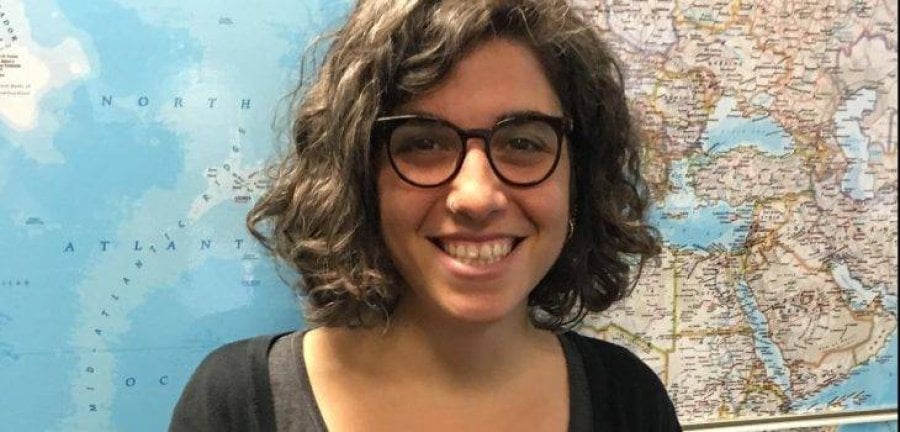COVID-19 Alumni Stories: Lenio Capsaskis
24 August 2020 London School of Hygiene & Tropical Medicine London School of Hygiene & Tropical Medicine https://lshtm.ac.uk/themes/custom/lshtm/images/lshtm-logo-black.png
How has the COVID-19 outbreak affected your work?
In the health policy and advocacy team at Save the Children we work to ensure that governments and donors prioritise critical interventions to ensure child survival. This means allocating enough resources while also making sure these resources are used to reach the most marginalised and vulnerable children.
The COVID-19 outbreak has the potential to impact on the progress that has been made in child health over the last decade. Resources are being diverted from critical routine services and health systems strengthening, governments are restricting essential services including vaccination campaigns in many countries, and health workers are not able to reach the most remote communities as a result. COVID-19 also poses a risk to some of the values and principles we advocate for. COVID-19 has exposed the huge health inequities which exist and exacerbated some of these. In many low- and middle- income countries, families were already having to make impossibly hard decisions about seeking care because of the prohibitive cost. COVID-19 increases the impact on people’s financial and food security, which will have a dramatic impact on their health. We are also worried about the potential inequity in access to a novel COVID-19 vaccine or treatment and the impact that will have on the poorest countries and families who will be left at the ‘back of the queue’.
How have you been responding to the outbreak?
At Save the Children globally we have been adapting our programmes to respond to the outbreak and its secondary impacts; particularly in health, nutrition, social protection, child protection and education.
In health policy and advocacy we are working with global health actors in the UK and with our country office colleagues to:
- Ensure global collaboration is at the heart of the response and that it is well-resourced and coordinated to support national responses to slow the spread and mitigate the impacts of COVID-19 (prioritising health system strengthening, maintaining essential services, free at the point of use care, and equitable access to vaccines and therapeutics).
- Raise resources from our international community to support the public health response to COVID-19, prioritising low-income countries, fragile contexts and weak health systems, channelled through the World Health Organization and multilateral funds. At the same time, ensure that resources are not diverted from, and continue to support health systems and essential routine services.
- Create the enabling policy environment which will allow for public and private health and nutrition services to be made available free at the point of use, at least for the most vulnerable and marginalised, for the duration of the crisis.
- Work with global health actors to raise awareness about the importance of pro-public safeguards in vaccine and therapeutic development for COVID-19, and make sure there are clear and adequate provisions in place to guarantee equitable and affordable access for low-and- middle-income countries.
How has your country’s response to the outbreak affected your work?
The UK is an influential donor and thought leader in global public health; the government have currently contributed significant amounts of money to the international response through funding programmes and direct service provision to research and development, and commitments to fair access. Our role is to hold the UK Government accountable on these commitments and provide our knowledge from working in countries with local partners to improve how and where resources are spent.
How has LSHTM’s training helped you during this outbreak?
LSHTM provided me with many tools for positioning any work that I do through a health and community systems lens. LSHTM trained me to ask critical questions, scrutinise evidence, and understand how data and research influence policy and power structures. These skills have been critical in the work I do and even more so during COVID-19 where we are working remotely and across different contexts.